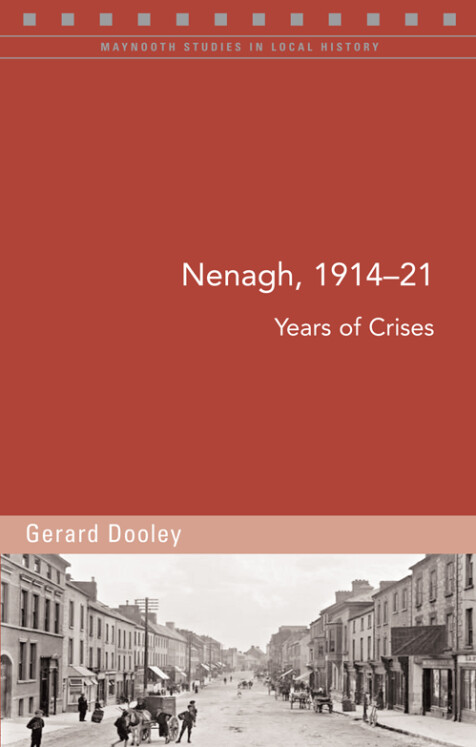Nenagh, 1914–21
Years of crisis
Gerard Dooley
‘Gerard Dooley fills a lacuna regarding Tipperary and the revolutionary period, and shows the extent of Volunteer activity through the excellent utilisation of sources … A welcome aspect of this book is Dooley’s exploration of the various social crises and how a significant number of men from Nenagh ended up on the Western Front during the First World War … Dooley sheds light on an overlooked element of the revolutionary period, and furthermore, the book shows the importance of local studies for tracing the complex layers of activity during this violent period’, Brian Casey, Irish Literary Supplement (Spring 2017).
‘Dooley engages with the wider historiography of the Irish revolution, placing the Nenagh experience during the years 1914-1921 in the context of work by David Fitzpatrick, Peter Hart and others. Dooley’s socioeconomic analysis of the background of the Irish Volunteers and army recruits is particularly valuable … this is impressive research of significant value to historians of the period’, Fionnuala Walsh, Family & Community History (October 2016).
‘The Maynooth Studies in Local History are one of the most significant publishing achievements in Irish History in the past quarter century … they are a triumphant demonstration of the value of the local approach [and] are illustrative, individually and severally, of the exemplary potential of the micro-study, and of the illuminative and illustrative quality of an approach that not just accommodates but provides a raison d’etre for a form of history that celebrates the diversity that underlies every generalisation that historians aspire to reach’, James Kelly, Studia Hibernica (2014).
‘The Maynooth Studies in Local History have brought about a quiet revolution in Irish local studies, and have changed the larger landscape too. Working from fascinating and little-known sources, and mobilizing the resources of energetic and imaginative scholarship, an extraordinary range of subjects has been identified, illuminated, and brought into focus. These 100 publications not only explore little-known local episodes and phenomena; they constitute a major contribution to the mainstream of Irish history’, R.F. Foster.

